Everything you need to know about COVID-19 in Alberta on Monday, Jan. 18
Alberta eases some COVID-19 restrictions starting today
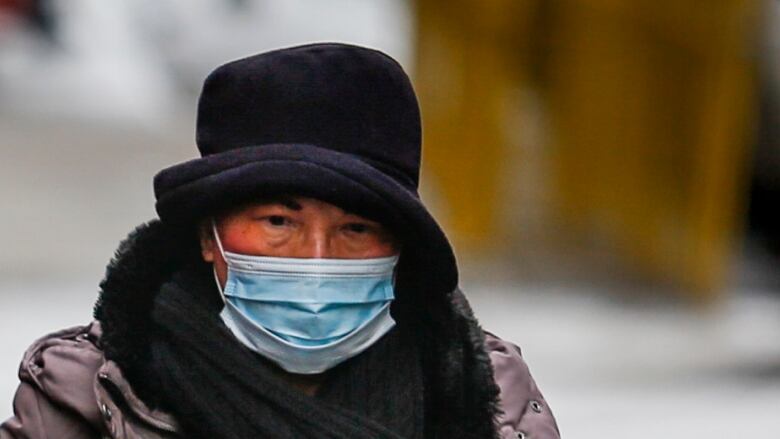
The latest numbers:
- Premier Jason Kenney saysAlberta will have no more vaccine doses available to administer as first doses by the end of todayor early Tuesday owing to theunexpected supply disruption the federal government announced last week.
- The premier says first-dose vaccinations have wrapped up at all 357 long-term care and designated supported living facilities in the province.
- Alberta reported474 new cases of COVID-19 on Monday, out of 8,500 tests. There are now 11,923active cases in the province.The positivity rate was 5.4 per cent, down from a 6.5 per cent positivity rate the previous day.
- There are 739 people in hospital, with 120 in intensive care, up slightly from 738 in hospital the previous day. Another 11 people have died for a total of 1,447 dead.
- While some health restrictions eased Monday, Dr. Deena Hinshaw, Alberta's chief medical officer of health, said the province's isn't out of the woods yet. She said it's important to continue to follow precautions and be mindful of community transmission in an effort to reduce case numbers and hospitalizations.
- A total of89,814vaccines have been administered as of Sunday.
- Kenney says Alberta currently has the capacity to deliver 50,000 doses per week and by March it's expected the province would be able to administer about 200,000 doses per week. "But we do not have the supply to match," he said.
- The planned vaccination of First Nations and Mtis individuals and seniors over age 75 has been put on hold.
- Kenney says almost 90,000vaccines had been administered in the province as of today (Jan. 18).
- Dr. Deena Hinshaw, Alberta's chief medical officer of health, will provide the latest infection numbers at 3:30 p.m.
- Since reaching a peak on Dec. 7 of 1,767 new cases per day, the seven-day average of daily new cases has been steadily declining in Alberta. As of Jan. 15, the seven-day average was 779.29, which is roughly the level it was at in mid-November when the numbers were exploding.
- The total of active cases in Alberta has been dropping slowly but steadily since it peaked at 21,138 on Dec. 13, a day after tougher provincial restrictions kicked in that made working from home mandatory for those who could,banned in-person service at restaurants, pubs and bars,and entirely closed entertainment and recreation facilities from movie theatres to gyms, personal and wellness services like spas and hair salons. A few days earlier, the province had also instituted a mandatory provincewide mask requirement, andbanned all outdoor and indoor social gatherings with people beyond one's immediate household.
- Twelveschools, about 0.4 per cent, are on alert or haveoutbreaks, with 15 cases in total.Outbreaks have beendeclared in two ofthem, accounting for five cases. In-schooltransmission has likely occurred in threeschools, and all three only led to one new case.
- The provincewide R-value is0.90,meaning thateach person who contracts COVID-19 will transmit coronavirus to less than one other person, on average.
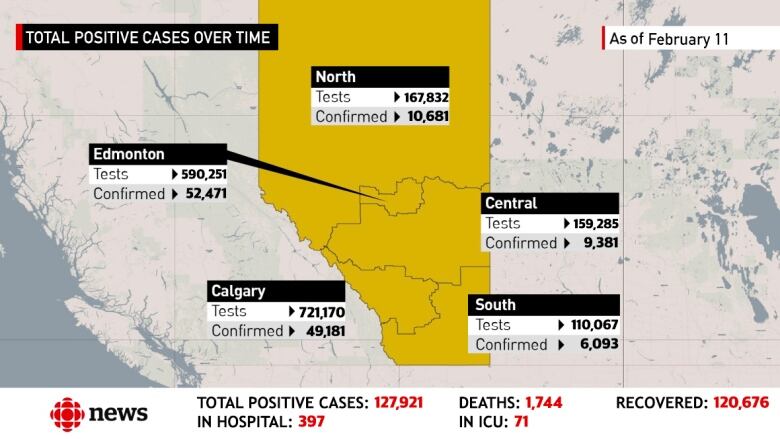
See the detailed regional breakdown:
Here isthedetailed regional breakdown of active cases as of Monday.
- Calgary zone:4,463, down from4,610 reported on Sunday(39,921recovered).
- Edmonton zone: 4,237, down from 4,303(44,310 recovered).
- North zone: 1,636, down from 1,704(7,513 recovered).
- South zone: 413, down from 415(5,062 recovered).
- Central zone: 1,148, down from 1,182(7,024 recovered).
- Unknown: 26, up from 20(111recovered).
Find out which neighbourhoods or communities have the most cases, how hard people of different ages have been hit, the ages of people in hospital, how Alberta compares to other provinces and more in: Here are the latest COVID-19 statistics for Alberta and what they mean
Here are thelatest Alberta COVID-19 stories from yesterday and today:
- MedicineHat MLAs push for regional easings of COVID-19 restrictions
- From watching property to safeguarding health, pandemic has kept Alberta security services busy
- Alberta businesses lining up for grant program as revenuesplummet
- Alberta's Phase 1 vaccination rollout slowed over Pfizer supply issues
- Eager for vaccine, Alberta health workers frustrated by suggestion they're not booking appointments
- Alberta to ease some COVID-19 restrictions starting Monday, health minister says
- Here are the latest COVID-19 statistics for Alberta and what they mean
- With no post-holiday surge, Alberta's COVID-19 numbers appear to be on right track
- 1,500 flights and rising as Canadians seek sunny escapes despite surging COVID-19 crisis
- For the latest on what's happening in the rest of Canada and around the world on Friday,see here.
Alberta to run out of COVID-19 vaccine supply:
Kenney said Monday that because of the supply disruption the federal government announced last week, Alberta will have no more vaccine doses available to administer as first doses by the end of today or early Tuesday.
He also said no more new first dose appointments will be accepted and some first dose appointments already booked will be rescheduled over the coming days to accommodate limited supply. Doses have been allocated to ensure second doses are available for committed appointments.
The planned vaccination of First Nations and Mtis individuals and seniors over age 75 has also been put on hold.
The federal government announced on Friday that shipments from Pfizer, one of two vaccine manufacturers approved for use in Canada, will be reduced until mid-February.
The Pfizer vaccine supply has been temporarily slowed because the pharmaceutical giant is cutting production to upgrade its manufacturing capacity at its facility in Belgium. The reduction affects every country receiving vaccines from the facility.
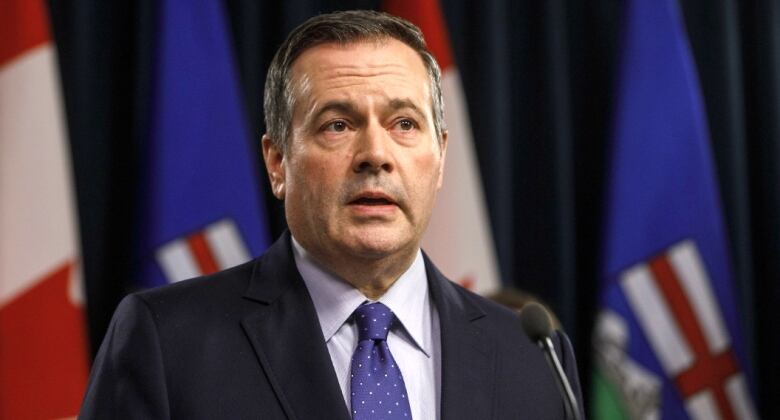
On the weekend, federal Procurement Minister Anita Anand said on Twitter that she had been in touch with Pfizer and had been assured the company is "deploying all efforts" to return to its regular delivery schedule as soon as possible.
Anand also said shipments for this coming week will be largely unaffected.
"I want to assure Albertans that despite this setback, we remain in position to immediately ramp up and get back to record vaccination numbers once sufficient doses are delivered. We remain undeterred in our efforts to get vaccines to those who need them most," Kenney said.
- For more, see:Alberta will run out of COVID-19 vaccine today or early Tuesday, Premier Jason Kenney says
The latestnews on MLA travel:
Lesser Slave Lake MLA Pat Rehnwas ousted from the UCP caucus Thursday and barred from running again for the partyafter beingchastised for travelling to Mexico over the holidays and publicly criticizedfor alleged absenteeism in his constituency. Rehnwill be barred from running for the UCPever again,Kenney announced on FacebookThursday morning.

Two otherUCP MLAs confirmed to CBC News on Wednesday that they left Albertaduring December despite theirown government's warnings against non-essential travel during the COVID-19 pandemic. That brings the total to nine (including Rehn) from the UCP caucus and none for the NDP caucus. The information comesafter CBC News asked the UCP and NDP caucuses where each member was and published a full list including the names of those who didn't say.
Health restrictions to ease Monday:
Alberta haseased some public health restrictions starting as ofMonday, allowing personal and wellness services businesses to reopen by appointment only.
The changes impact hair salons, barber shops, esthetics, manicure and pedicure businesses, reflexology, piercing and tattoo shops, and other personal and wellness services throughout the province.
Appointments should be limited to one-on-one services and businessesand clients are expected to keep following the public health guidelines.
Starting Jan. 18, up to 10 people will also be allowed to gather outdoors, and up to 20 people will be allowed to attend a funeral, with the caveat that allwho attend wear masks and maintaintwo metres of physical distancing.
Funeral receptions are still not allowed, and indoor gatherings remain prohibited.
- To find out more, see:Alberta to ease some COVID-19 restrictions starting Monday, health minister says
Post-holiday COVID-19 numbers:
Fears of a post-holiday COVID-19 surge appear not to have materialized in Alberta, and experts say current trends are encouraging, but the province still has some way to go before major public-health measures can be safely lifted.
Before the holidays, Kenney said he was concerned that Albertans might misunderstand or disregard the stricter rules imposed in December restricting family gatherings.
But it appears Albertans generally followed the rules and limited the spread of the virus.
A post-holiday spike in cases would be expected to have shown up in the data by now, but so far there has been no major increase.
- To find out more, see: With no post-holiday surge, Alberta's COVID-19 numbers appear to be on right track
Analysis on Alberta and COVID-19 denialism:
In a new analysis piece, CBC's Drew Anderson studies how anxiety, along with economic consequences, have made the province a prime breeding ground for conspiracy.
"Those forces have conspired to make Alberta a prime breeding ground for the kind of conspiratorial thinking on display, which pulls nuggets of truth from the flurry of science in real time and contorts it into a narrative of oppression. It is a near-perfect storm for the small minority caught up in it," Anderson writes.
"The question is: how did they find themselves in its path?"
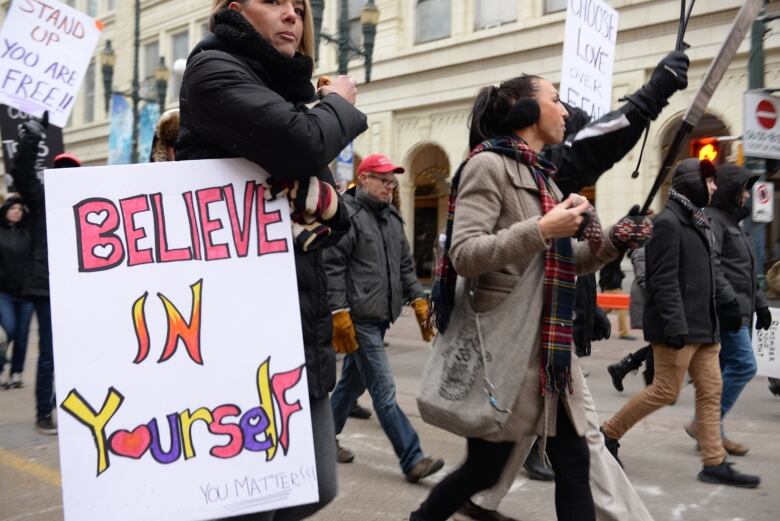
- To read out more: COVID denialism and the Alberta context
Calls for restrictions to be eased:
Two United Conservative MLAs are pushing forCOVID-19 restrictions to be altered on a regional basis, rather than apply the same rules across the entire province.
Drew Barnes and Michaela Glasgo, who represent ridings that cover the Medicine Hat area, say thepublic health orders are often disproportionate to the lownumber of casesin their southeastern region.
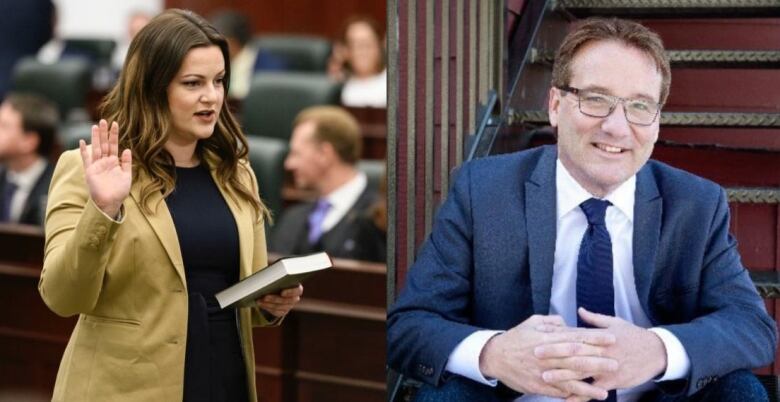
They've both heard from many constituents urging them to askfor relief from some of the measures and that message has been relayed to the premier.
"I think it's time to open up now," Barnes told CBC News. "I would ask the premier to consider this strongly."
On the front lines of COVID-19:
A Calgary emergency room physician is capturing life on the front lines of the COVID-19 pandemic through her camera lens.
For the past six weeks, Dr. Heather Patterson has visited hospitals in the city to take photos of what unfolds in the hallways and patient rooms and even in the ICU.
"As the pandemic began to affect our Calgary hospitals and community, I realized that I wanted to capture what was actually happening inside our hospitals," Patterson told theCalgary Eyeopeneron Thursday.
"I wanted to tell the authentic story of this team of people who have a common goal, and how we're achieving that."
- To see her moving photos, see:Calgary ER doctor captures life on front lines of pandemic through photography project
Transit ridership reaches decades low:
Calgary Transit's ridership has plummeted, returning to levels the system hasn't seen in decades, falling $90 million short on revenue thanks to the ongoing COVID-19 pandemic.
In 2020, ridership reached approximately 52 million people, compared to 106.4 million in 2019 a 51 per cent decrease overall.
It's a struggle systems across the globe are grappling with: how to get people back on public transit safely, and keep afloat with an uncertain year ahead.
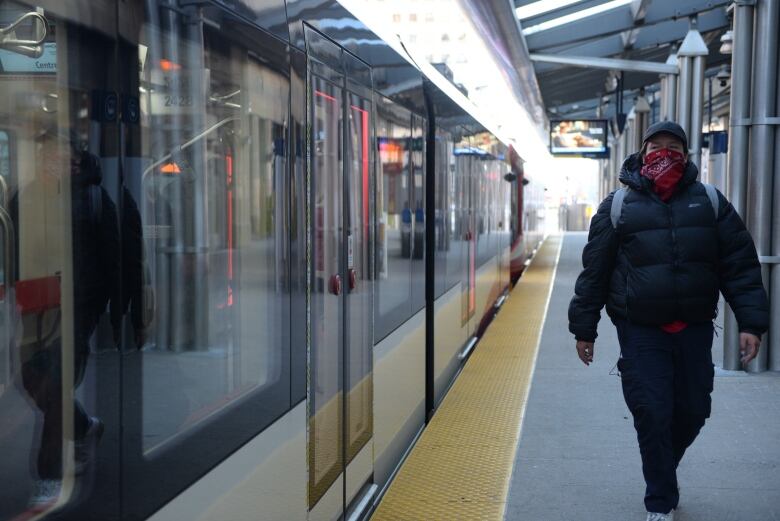
- For more, see:Calgary Transit ridership reaches decades low in 2020















_(720p).jpg)


 OFFICIAL HD MUSIC VIDEO.jpg)
.jpg)



























































































